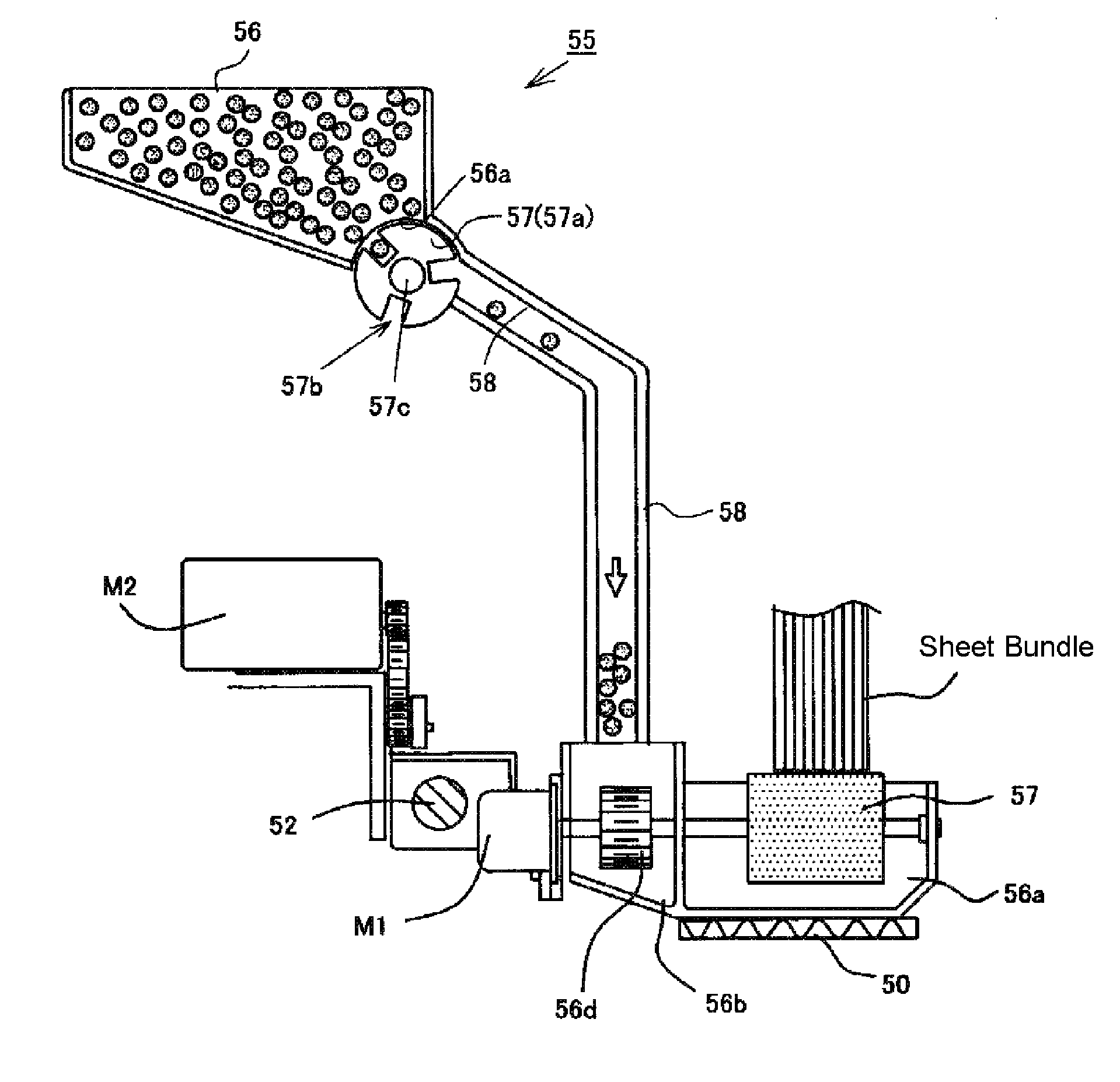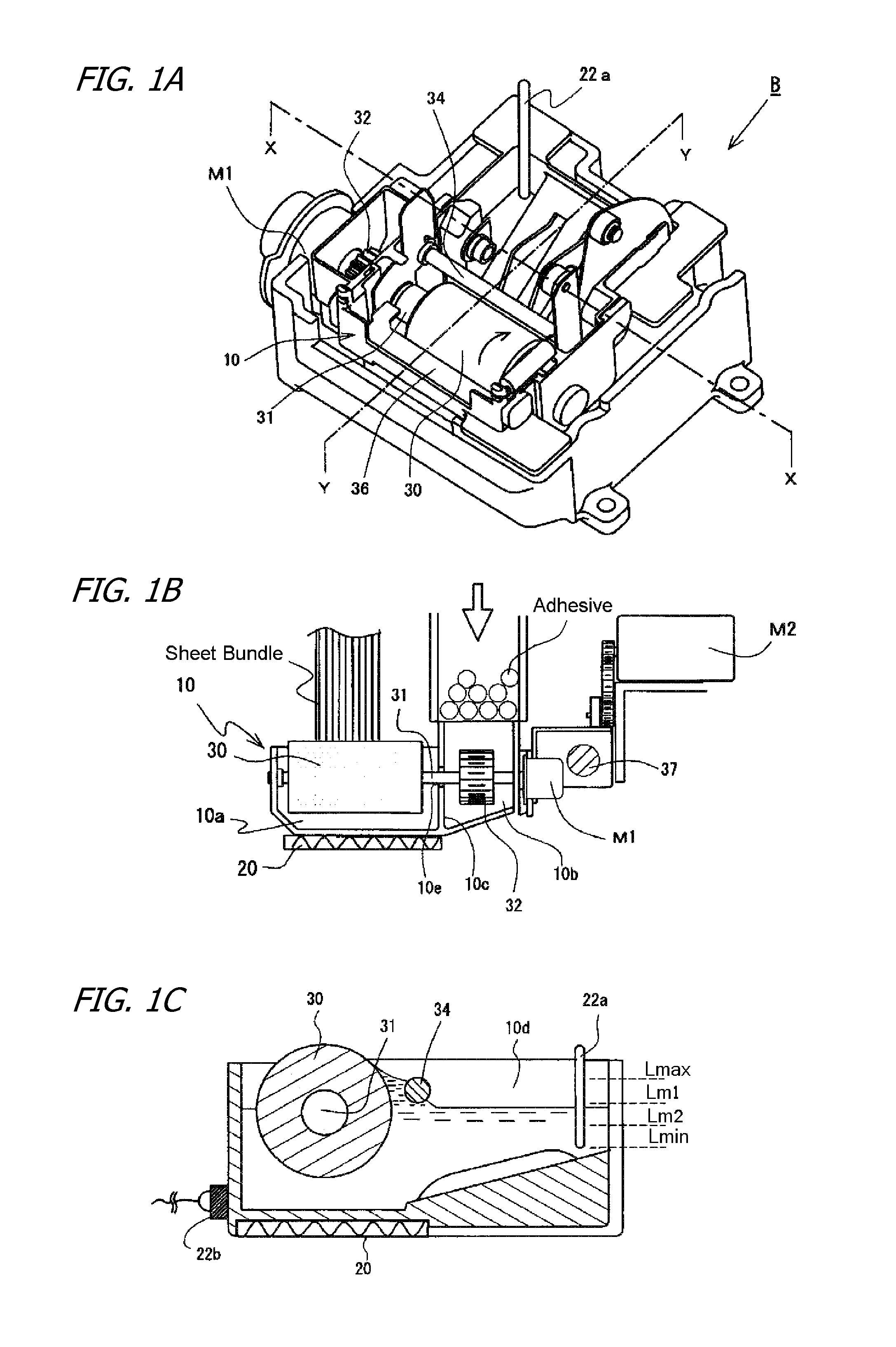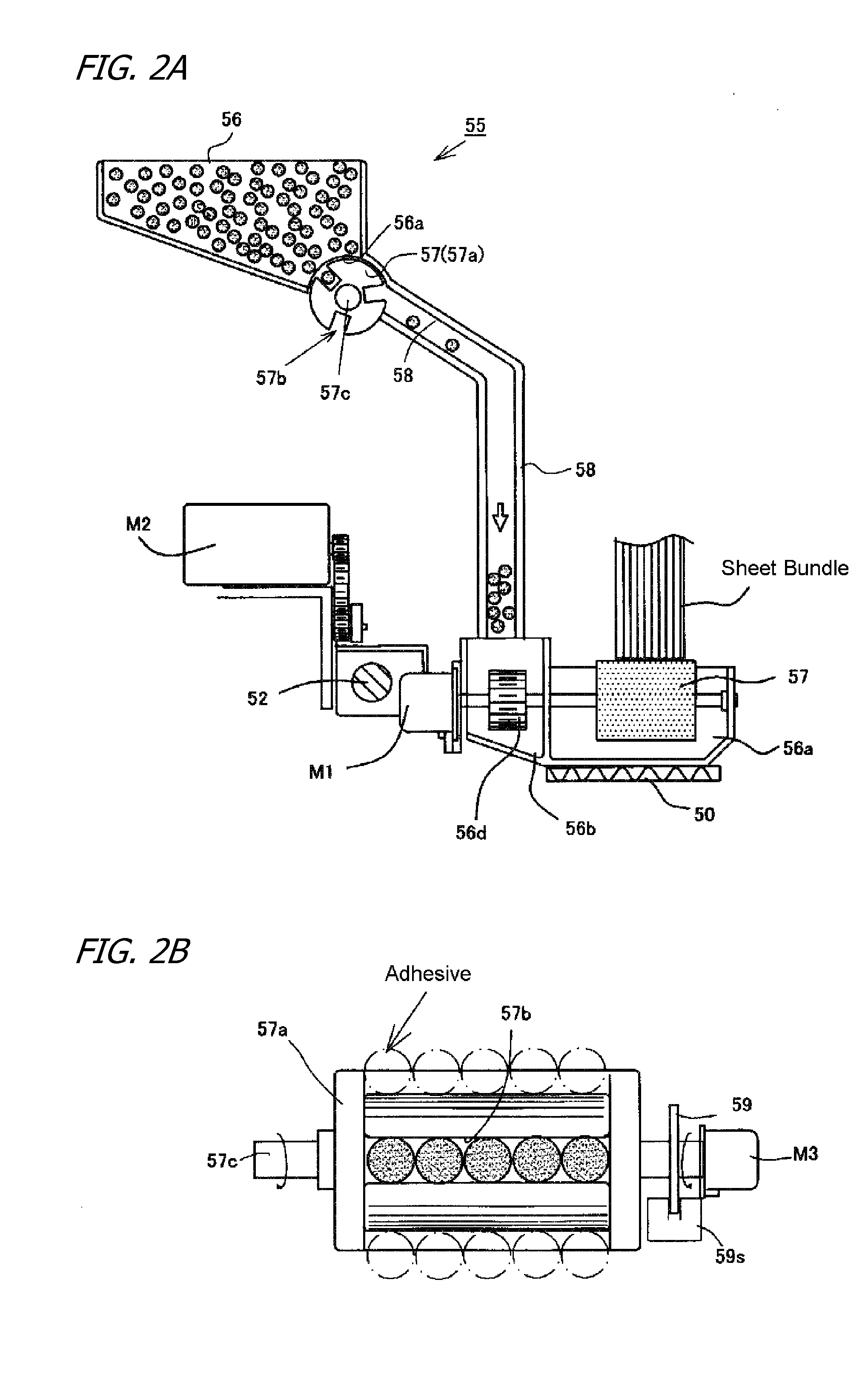Adhesive Applicator and Bookbinder in Bookbinding Apparatus, and Image-Forming System Associated Therewith
a technology of adhesive applicator and bookbinder, which is applied in the direction of electrographic process, instruments, transportation and packaging, etc., can solve the problems of increasing the amount of adhesive to refill, the adhesive in the container to harden or become semi-hardened, and the time required to refill the adhesive is long, so as to shorten the time required to refill the adhesive, and easy to remove the residual adhesive
- Summary
- Abstract
- Description
- Claims
- Application Information
AI Technical Summary
Benefits of technology
Problems solved by technology
Method used
Image
Examples
embodiment 1
[0071]The first refilling method sets a plurality of refilling amounts that differ in levels for the amount of adhesive pre-filled, and one is selected with the remaining number of unprocessed sheets. As shown in FIG. 9A, the remaining number of unprocessed sheets (St21) is determined when a near-empty state is determined by the refill amount control means 62 with a detection signal from the adhesive sensor 22a (St20). This determination is done by remaining sheets determining means 63. The remaining sheets determining means 63 is configured to subtract the number of sheet bundles that have been coated with adhesive, from the “process number (N)” set at step 06, for example. In other words, at step 14, by executing “N−1,” the number of remaining unprocessed sheets is subtracted.
[0072]Also, the refill amount control means 62 sets the plurality of refilling amounts that differ in levels, and stores that in memory means such as RAM and the like. The refilling amount is set in a plurali...
embodiment 2
[0076]The second refilling method calculates the total consumption amount of unprocessed sheets and sets the refilling amount based on that calculated value. As shown in FIG. 9B, the remaining number of unprocessed sheets (St21) is determined when a near-empty state is determined by the refill amount control means 62 with a detection signal from the adhesive sensor 22a (St20). This determination is performed by the remaining sheets determining means 63; the remaining sheets determining means 63 has the same configuration as that described in relation to the first embodiment.
[0077]The “maximum refilling amount” where the adhesive is full in the adhesive tub 10a is preset in the refill amount control means 62. The refill amount control means 62 is equipped with calculation means 64 that calculates the scheduled total consumption amount of adhesive (X×L) from the remaining number X of applications of unprocessed sheets and the adhesive amount (L) consumed for one sheet bundle. Based on...
PUM
| Property | Measurement | Unit |
|---|---|---|
| adhesive | aaaaa | aaaaa |
| volume | aaaaa | aaaaa |
| refill volume | aaaaa | aaaaa |
Abstract
Description
Claims
Application Information
 Login to View More
Login to View More - R&D
- Intellectual Property
- Life Sciences
- Materials
- Tech Scout
- Unparalleled Data Quality
- Higher Quality Content
- 60% Fewer Hallucinations
Browse by: Latest US Patents, China's latest patents, Technical Efficacy Thesaurus, Application Domain, Technology Topic, Popular Technical Reports.
© 2025 PatSnap. All rights reserved.Legal|Privacy policy|Modern Slavery Act Transparency Statement|Sitemap|About US| Contact US: help@patsnap.com



